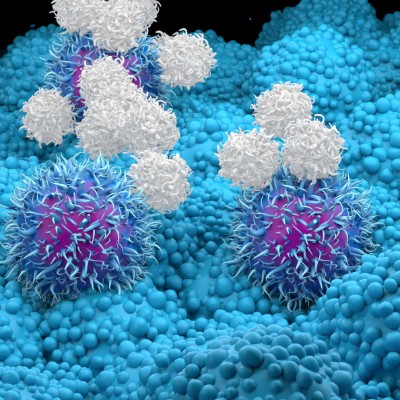
There exists a high unmet medical need for Colorectal Cancer (CRC) patients treated with Immune Checkpoint Inhibitors (ICI). Only 15% of patients have an MSI-H phenotype and are eligible for immunotherapy, with approximately 44%1 responding favorably to Keytruda™(anti-PD1). ICI therapy has failed to provide therapeutic benefit in the remaining 85% of CRC patients (MSS/MSI-L), leaving them without access to this life-saving therapy.
The key issue of non-responding CRC patients is immune escape by tumor cells by means of:
by means of:
ACB2112 displays outstanding results in rendering anti-PD1 resistant mouse models susceptible to ICI therapy by targeting immune escape.
The clinical hypothesis is to render anti-PD1 therapy effective in 85% of non-responder patients (MSS/MSI-L) through a cotherapy with ACB2112.